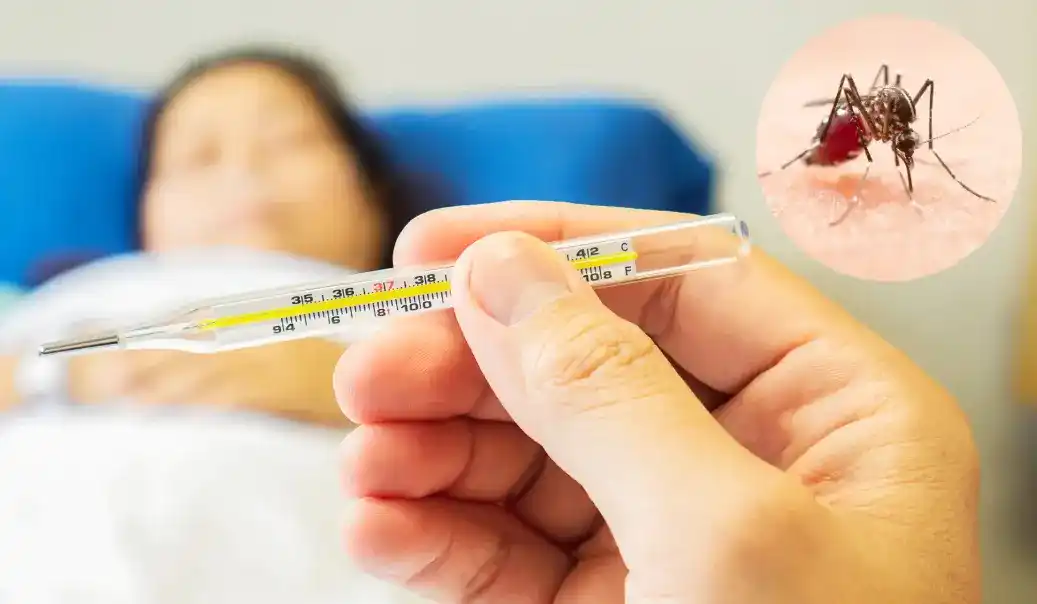Understanding Dengue Fever Symptoms: Recognizing the Signs of a Potentially Serious Illness

Dengue fever is a viral infection transmitted primarily by Aedes mosquitoes, particularly Aedes aegypti and Aedes albopictus. It is prevalent in tropical and subtropical regions, including parts of Asia, Africa, the Caribbean, and Central and South America. Understanding the symptoms of dengue fever is crucial for early detection and prompt medical intervention. Here’s what you need to know:
Common Symptoms of Dengue Fever:
- High Fever: Dengue fever often begins with a sudden, high fever, typically reaching up to 104°F (40°C) or higher. This fever is one of the hallmark symptoms of the disease.
- Severe Headache: Many individuals with dengue fever experience intense headaches, which can be debilitating and persistent.
- Pain Behind the Eyes: Pain, sensitivity, or discomfort behind the eyes is another common symptom, often accompanied by eye redness.
- Joint and Muscle Pain: Dengue fever is often referred to as “breakbone fever” because of the severe joint and muscle pain it causes. This pain can be severe and affect multiple joints and muscles throughout the body.
- Fatigue: Feeling extremely tired and weak is a typical symptom of dengue fever, often lasting for several weeks.
- Skin Rash: A rash may appear shortly after the onset of fever, characterized by small red spots or patches on the skin. The rash usually starts on the arms, legs, and torso and can spread to other parts of the body.
- Mild Bleeding: In some cases, dengue fever can cause mild bleeding, such as nosebleeds, bleeding gums, or easy bruising. Severe bleeding is rare but can occur in more severe forms of the disease.
Warning Signs of Severe Dengue:
While most cases of dengue fever are mild and can be managed with supportive care, some individuals may develop severe dengue, also known as Dengue Hemorrhagic Fever (DHF) or Dengue Shock Syndrome (DSS). Severe dengue is a medical emergency and requires immediate medical attention. Warning signs of severe dengue include:
- Severe abdominal pain
- Persistent vomiting
- Bleeding from the gums or nose
- Blood in vomit or stools
- Restlessness or irritability
- Rapid breathing
If you or someone you know exhibits any of these warning signs, seek medical care immediately.
Preventing Dengue Fever
- Prevention is key to reducing the risk of dengue fever. Here are some preventive measures you can take:
- Mosquito Control: Reduce mosquito breeding sites around your home by eliminating standing water in containers, flower pots, and gutters.
- Use Mosquito Repellent: Use mosquito repellents containing DEET, picaridin, or oil of lemon eucalyptus when outdoors.
- Wear Protective Clothing: Wear long sleeves, pants, and socks to minimize skin exposure to mosquitoes, especially during peak mosquito biting times.
Recognizing the symptoms of dengue fever and taking preventive measures are essential steps in protecting yourself and your family from this mosquito-borne illness. If you suspect you have dengue fever or experience symptoms, consult a healthcare professional for diagnosis and appropriate medical care.
Stay informed, stay vigilant, and stay safe against dengue fever.







